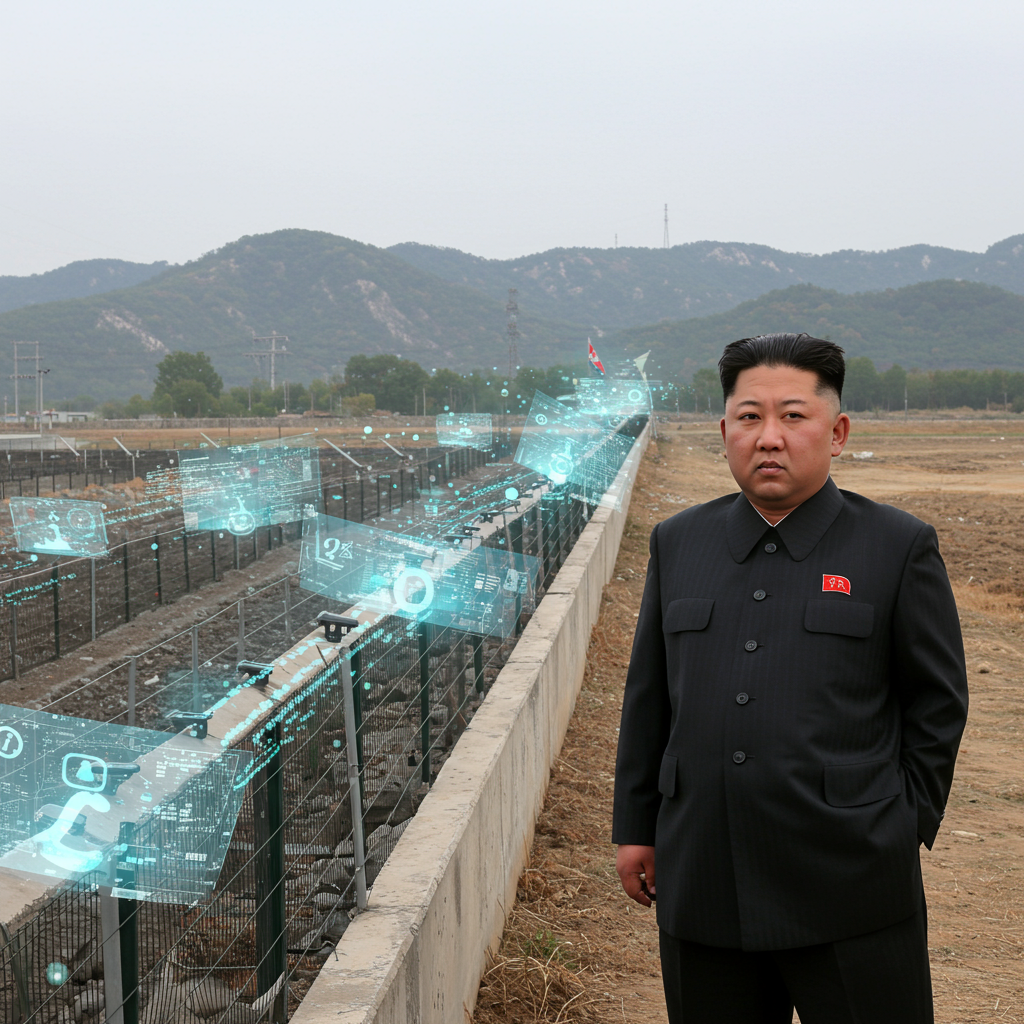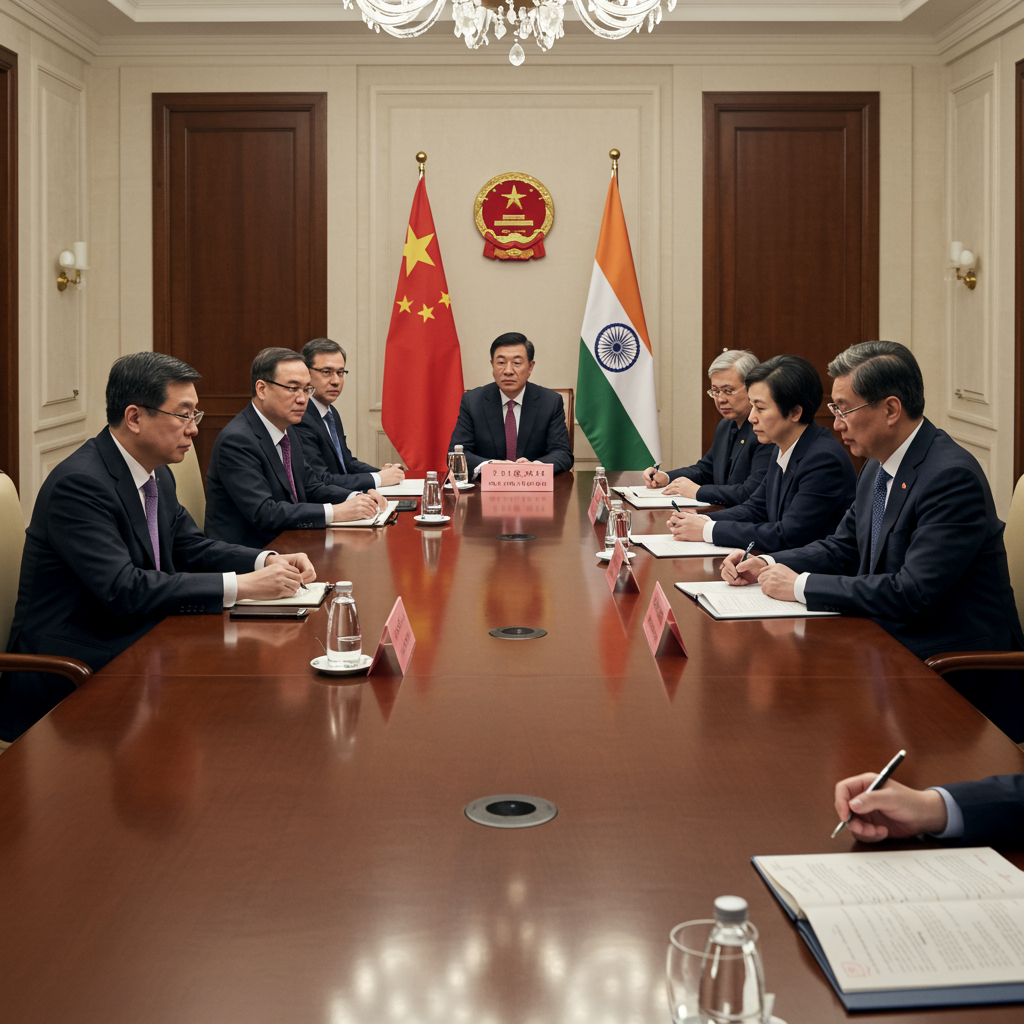While the heavily fortified border between North and South Korea stands as a physical barrier bristling with barbed wire and guard posts, a more subtle, yet equally intense, conflict rages underground: an information war. For years, these two nations, technically still at war, have engaged in a battle for the minds of North Koreans, with Seoul attempting to penetrate Pyongyang’s strict information blockade and Kim Jong Un’s regime fighting fiercely to maintain control.
The core of this silent struggle lies in North Korea’s unique isolation. It is the only country in the world not connected to the global internet, and all its media – television, radio, newspapers – are tightly controlled by the state. This iron grip is essential for the Kim regime, experts explain, because much of the mythology surrounding the ruling family is fabricated, and exposing these lies could potentially destabilize the government. The South Korean strategy, therefore, is built on the belief that widespread awareness of the truth could eventually lead to change within the North.
How South Korea Tries to Break Through
South Korea and affiliated organizations employ a variety of methods to get outside information into the North:
Border Broadcasts: Along the border, giant loudspeakers blast South Korean pop music alongside messages that subtly highlight the freedoms and prosperity enjoyed in the South. These broadcasts are often met with attempts by North Korea to drown them out with military propaganda music.
Radio Waves: A dedicated group of broadcasters and non-profit organizations work under the radar, transmitting information via short and medium radio waves late at night, allowing North Koreans to listen in secret.
Smuggled Media: Perhaps the most impactful method involves smuggling thousands of USB sticks and micro-SD cards across the border each month. These devices are loaded with diverse foreign content aimed at challenging state narratives. This includes popular South Korean films, TV dramas, and K-pop songs (featuring global sensations like BTS and Jennie), as well as uncensored news and “education programs” on democracy and human rights – the content the Kim regime fears most.
South Korean entertainment, though seemingly lighthearted, serves a powerful purpose. Dramas depicting ordinary life in the South – with characters living in modern apartments, driving cars, and dining out – starkly contrast with the hardship and limited existence many North Koreans experience. This challenges the state’s portrayal of the South as poor and oppressed, revealing a reality of freedom and development that is years ahead of the North. Defectors recount being moved to tears by these shows, prompting them to reflect on their own suppressed dreams.
The Impact Inside North Korea
Testimonies from those who have fled the North underscore the significant impact of this foreign media. Recent defectors often cite exposure to outside content as a key motivator for risking their lives to escape. The information plants seeds of doubt about the government’s narrative and reveals a wider world beyond state propaganda.
Kang Gyuri, a 24-year-old defector, shared how watching foreign TV shows fueled her desire to leave. She grew up secretly listening to radio broadcasts and later sharing smuggled USBs with friends, watching K-dramas and discussing K-pop idols and South Korea’s economic advancements. This exposure made her realize the extent of the state’s control was unique to North Korea. This underground sharing culture has profoundly influenced North Korea’s youth, even impacting their speech and dress patterns.
Kim Jong Un Fights Back
Aware of the existential threat this information influx poses to his authority, Kim Jong Un has drastically escalated his countermeasures:
Increased Border Security: New electric fences built along the Chinese border during the pandemic aim to make smuggling more difficult.
Harsh Laws and Punishments: Since 2020, severe new laws have dramatically increased penalties for possessing, consuming, or distributing foreign media. Punishments now include lengthy prison sentences and even execution, creating a chilling effect that has driven the sharing of content further underground among only the most trusted individuals.
Cultural Crackdown: In 2023, the regime went further, making it a crime to use South Korean phrases or accents. “Youth crackdown squads” patrol streets, monitoring young people’s behavior, appearance, and even confiscating phones to check text messages for prohibited terms.
- Technological Control: In an Orwellian move, a smuggled North Korean mobile phone revealed software programmed to automatically replace South Korean word variants with North Korean equivalents, illustrating the regime’s deep integration of technology into its control efforts.
- https://www.bbc.com/news/articles/c98pnx35xj2o
- https://www.bbc.co.uk/news/articles/c98pnx35xj2o
- https://www.rand.org/pubs/articles/2017/understanding-north-korea.html
- https://carnegieendowment.org/2022/08/15/south-korea-s-decapitation-strategy-against-north-korea-has-more-risks-than-benefits-pub-87672
- https://www.pbs.org/newshour/politics/u-s-says-not-pushing-regime-change-north-korea
These intensified crackdowns have led some experts to believe that North Korea is currently gaining the upper hand in this information war, making the work of those trying to send information harder and more dangerous.
Funding Challenges and the Strategic Debate
Compounding the difficulties are external challenges, particularly concerning funding. A significant portion of the work to get information into North Korea has been supported by the U.S. government. However, recent aid cuts under former President Trump impacted organizations and federally financed news services like Radio Free Asia and Voice of America, which broadcast into the North.
Critics argue these cuts are “short-sighted,” closing vital windows into the outside world for North Koreans and inadvertently assisting Kim Jong Un. They contend that given the limited success of sanctions, diplomacy, and military pressure in persuading North Korea to denuclearize, information warfare might be the most effective remaining strategy to potentially “change the nature of the country.” While some in South Korea question why the funding burden falls primarily on the U.S., funding such efforts domestically remains politically sensitive, especially among those favoring improved relations with Pyongyang.
The Enduring Hope
Despite the intensified suppression and funding uncertainties, proponents of information penetration remain hopeful. They believe that the information already absorbed by North Koreans over years cannot be easily erased by the regime. Furthermore, as technology continues to evolve, they are confident that new methods for disseminating information will emerge, ultimately making it harder for the regime to maintain its absolute control. In this silent, ongoing battle for truth and influence, the outcome remains uncertain, but the flow of information continues to represent a persistent challenge to one of the world’s most isolated regimes.



